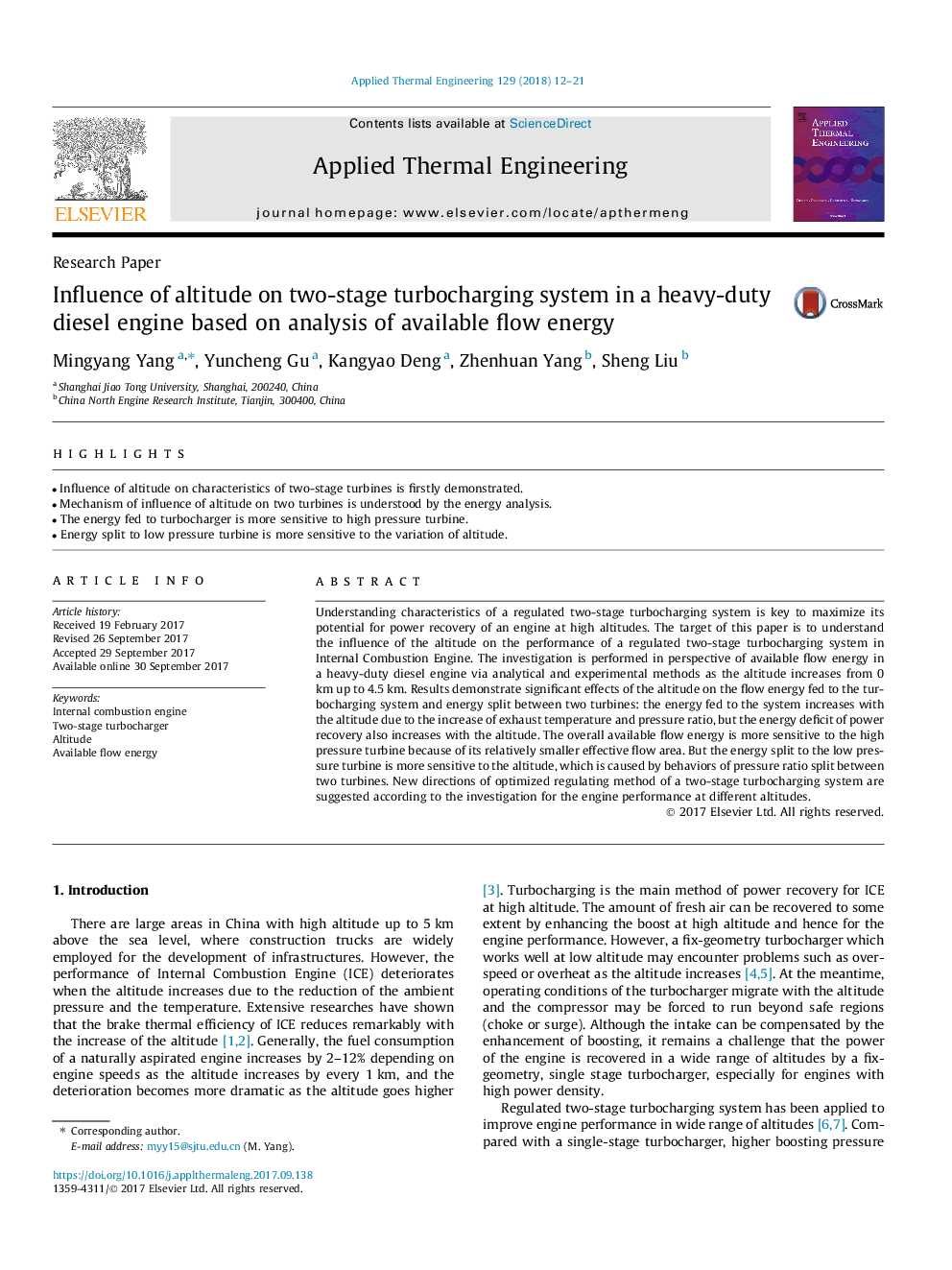| Article ID | Journal | Published Year | Pages | File Type |
|---|---|---|---|---|
| 4990316 | Applied Thermal Engineering | 2018 | 10 Pages |
Abstract
Understanding characteristics of a regulated two-stage turbocharging system is key to maximize its potential for power recovery of an engine at high altitudes. The target of this paper is to understand the influence of the altitude on the performance of a regulated two-stage turbocharging system in Internal Combustion Engine. The investigation is performed in perspective of available flow energy in a heavy-duty diesel engine via analytical and experimental methods as the altitude increases from 0 km up to 4.5â¯km. Results demonstrate significant effects of the altitude on the flow energy fed to the turbocharging system and energy split between two turbines: the energy fed to the system increases with the altitude due to the increase of exhaust temperature and pressure ratio, but the energy deficit of power recovery also increases with the altitude. The overall available flow energy is more sensitive to the high pressure turbine because of its relatively smaller effective flow area. But the energy split to the low pressure turbine is more sensitive to the altitude, which is caused by behaviors of pressure ratio split between two turbines. New directions of optimized regulating method of a two-stage turbocharging system are suggested according to the investigation for the engine performance at different altitudes.
Keywords
Related Topics
Physical Sciences and Engineering
Chemical Engineering
Fluid Flow and Transfer Processes
Authors
Mingyang Yang, Yuncheng Gu, Kangyao Deng, Zhenhuan Yang, Sheng Liu,
